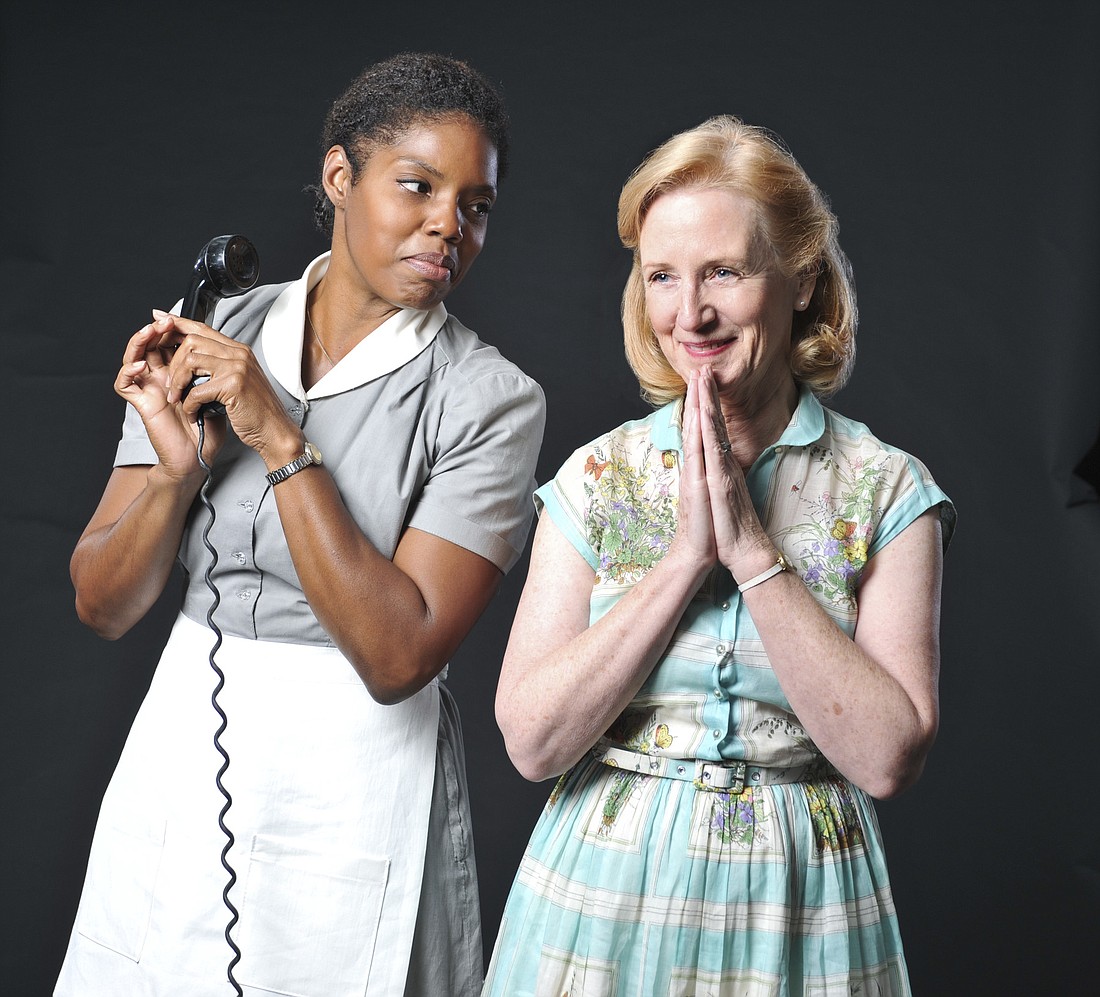- November 26, 2024
-
-
Loading

Loading

IF YOU GO
Asolo Repertory Theatre’s “Clybourne Park”
The Pulitzer Prize and Tony Award-winning comedy written by Bruce Norris play about race relations.
When: 8 p.m. Friday, March 15. Runs through May 2
Where: Asolo Repertory Theatre, 5555 N. Tamiami Trail
Cost: Tickets $20 to $75.
Info: Call 351-8000.
What stood out about this production to you upon first reading it?
My first exposure to it was reading the script, and I immediately found it compelling and utterly engaging. As a piece of new writing — and we read a lot of new plays — this was one of the rare ones that was just impossible to put down. I had to keep tabs on where it was going and what was happening to it, and we looked into getting the rights for a while before we actually got it. I knew it was a piece that was going to work very well here, and the fact that we are able to include it as part of the American Character Project launch has given it a particular resonance.
How does “Clybourne Park” speak to The American Character theme?
It’s about a really abiding American issue, and that is how neighborhoods are formed, who moves into them over time, and then the process of gentrification — because there’s a constant recycling of American neighborhoods. The play taps into that. It’s also very funny, and it feels really hot and timely.
What's been your experience directing it, so far?
This is one of the most exciting casts we’ve ever assembled here at the theatre. These people have to be totally real, and at the same time the play is a very fast and challenging stylistic piece. But it will only work if the actors are totally convincing. So, getting that right — getting the balance of the human beings right so that no one becomes just a caricature, and so that everybody has really got legitimacy and honesty in what they have to say – is one of the biggest challenges. Not to judge the characters. Some of the characters are not likable, but it’s not up to us – as the director and the actors – to make that judgment. We have to get behind their facades and uncover why they think and feel this way, and that’s the most exciting challenge.
Describe the script's connection to “A Raisin in the Sun.”
It has a unique structural impulse in that it’s a response to Lorraine Hansberry’s “A Raisin in the Sun,” and its first act is set in 1959 in Chicago — the same timeframe as Hansberry’s play — and its second act is set fifty years later in 2009. It introduces us to the unseen characters that are alluded to in Hansberry’s play. It’s about the white neighborhood in 1959 that Hansberry’s Younger family buys into, and then the decision fifty years later to re-sell the house in question to white people moving into the now predominantly black neighborhood. One character from “Raisin” also appears in “Clybourne Park” — the head of the neighborhood association that tries to buy the house back from the Youngers, Karl Lindner (played by David Breitbarth). These two plays are definitely having a conversation with each other. Bruce Norris, in just a breathtaking example of playwriting, takes inspiration from Raisin and expands on the themes, putting his finger on the pulse of where we are in this country today in terms of our social attitudes towards race and ownership of real estate.
Did you or the cast familiarize yourself with the classic text before or during the rehearsal process? If so, how has it helped enhance the production?
We did read the play again, even though everyone in the cast had read the text of Raisin at some point in their lives previously. It is so wonderful to pick up the ball where that story left off and run with it. For audience members who are not familiar with the play, or for those who would like to be reminded of it in close proximity to a performance of “Clybourne Park,” we have decided to stage a reading by the Westcoast Black Theatre Troupe of “A Raisin in the Sun” here in the Mertz Theatre on April 22. People can get tickets for this reading by calling our box office at 351.8000.
What do you hope people take from this production?
We hope people will think about the important issues raised in the play. We hope that people will be encouraged to learn more about their neighbors and celebrate the differences between us instead of fearing them. Sarasota has come so far in developing the notion of community and embracing each other, we hope that the work we are doing at the theatre helps push this even further. It is so exciting to be living in Sarasota right now, don’t you agree?